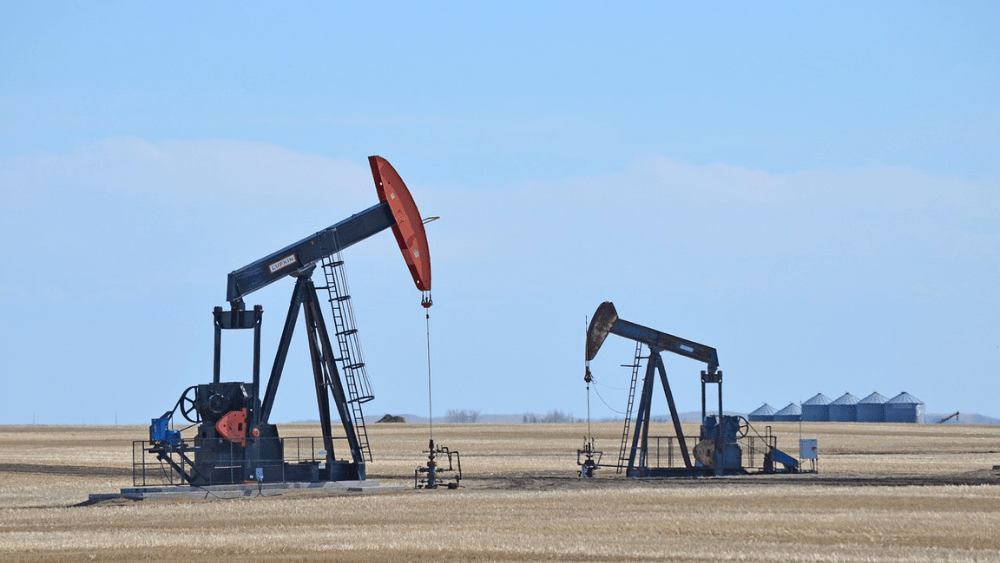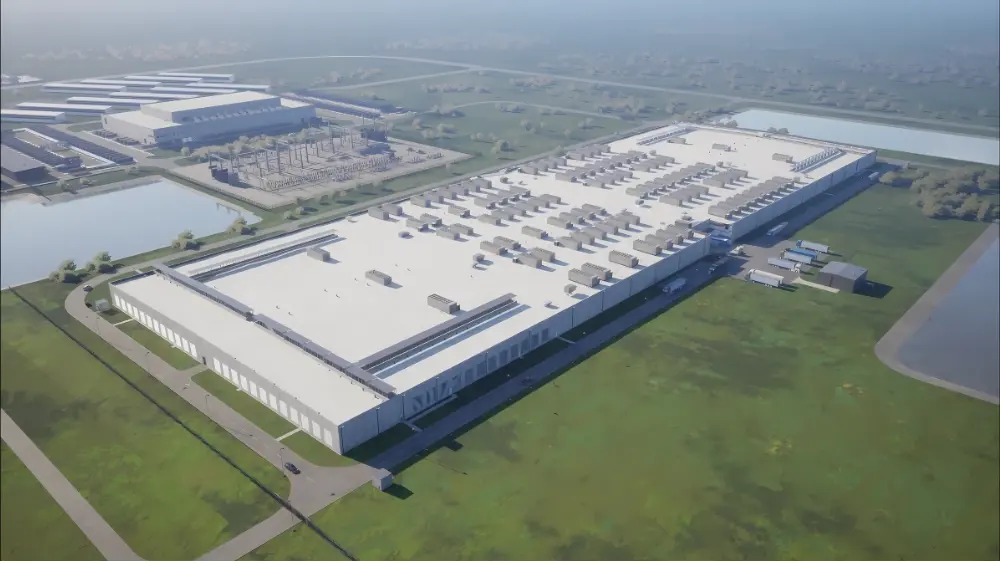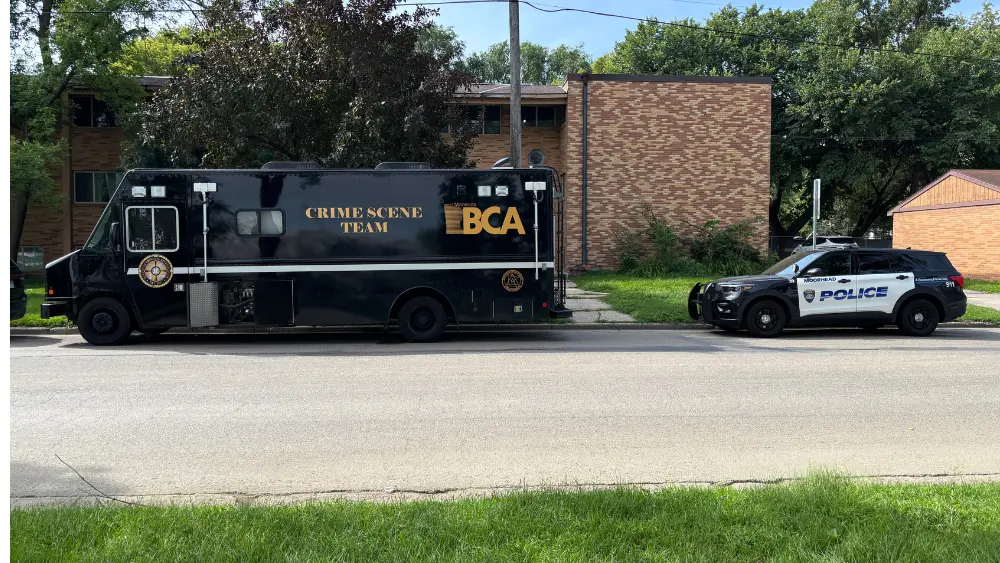Steve Hallstrom
Special to The Farmer
Alison Ritter smiles when she says her family conversations have always been full of good vibes and harmony. But that whole climate change discussion has been interesting.
“Believe it or not, I have parents who are Democrats and they did not vote for the Trump administration and I’ve been telling them for years if you vote against these policies or this administration, you’re voting me out of a job (laughs).”
Ritter, Executive Director of the Western Dakota Energy Association (WDEA), says those who did vote for Donald Trump have seen positive results for the Bakken area.
Ritter highlighted what she called “the transformative potential” of the recently passed “One Big Beautiful Bill Act (OBBBA)” during a special “Talk Radio Town Hall” program, hosted by Scott Hennen on AM 1090 The Flag.
Ritter emphasized the bill’s role in advancing North Dakota’s energy sector, particularly through enhanced oil recovery (EOR) and carbon capture, while also addressing the state’s ongoing legal battle with the Biden administration over federal land lease auctions.
North Dakota, a powerhouse in U.S. energy production, generates significant resources annually.
According to the U.S. Energy Information Administration, the state produced approximately 1.1 million barrels of crude oil per day in 2024, accounting for about 9% of U.S. total crude oil production, and 3.4 trillion cubic feet of natural gas, ranking it among the top 10 gas-producing states. Additionally, North Dakota’s lignite coal industry produced 27 million tons in 2024, supporting 10% of the state’s electricity generation.
These figures underscore the state’s critical role in domestic energy production, which Ritter argues is poised for further growth under the new legislation.
Ritter praised the One Big Beautiful Bill for its comprehensive approach to bolstering domestic energy.
“We’ve always been an energy leader, but the One Big Beautiful Bill takes that to another level. It rolls back regulations and fees, rebalances energy incentives, especially for carbon capture and enhanced oil recovery, which is where North Dakota needs to go to continue benefiting from our great natural resources.”
The bill, signed into law earlier this year, reduces regulatory burdens on fossil fuel industries, eliminates subsidies for wind and solar, and enhances tax incentives for carbon capture, utilization, and storage (CCUS). A key provision is the adjustment of the 45Q tax credit to $85 per ton for CO2 used in EOR, which experts says levels the playing field for oil companies to capture and utilize CO2 from stationary sources like coal-fired power plants.
The focus on EOR is particularly significant for North Dakota’s Bakken Formation, where oil production often declines rapidly after initial hydraulic fracturing.
“When we start producing our Bakken wells,” Ritter explained, “they produce high amounts but tail off quickly. If we want to get five more billion barrels of oil out of the ground, we’ve got to put something down there to move it. The beauty of our coal and oil industries working together is that coal’s CO2, seen by some as a byproduct, is a beneficial use to get additional oil out of the ground.”
She noted that the state’s Energy and Environmental Research Center (EERC) in Grand Forks is piloting projects to “crack the code” on EOR, aiming to unlock vast reserves by injecting CO2 to push out what industry experts call “tight oil”.
Tight oil, as defined by the U.S. Department of Energy, is a type of light crude oil found in low-permeability rock formations like shale, sandstone, and carbonate reservoirs. It’s called “tight” because the oil doesn’t flow easily through the rock, unlike conventional oil deposits.
Currently, North Dakota exports CO2 to Canada for similar purposes, but Ritter sees domestic EOR as a game-changer for the state’s oil industry.
The WDEA, which Ritter leads, plays a strong public role in advocating for the state’s energy-producing counties.
“The Western Dakota Energy Association advocates for counties, cities, and schools in the oil, gas, and coal-producing counties of western North Dakota. It’s my job to work with industry to ensure our communities get the revenue they need for good schools, roads, and functioning governments.”
Ritter emphasized that the energy sector has reversed North Dakota’s population decline, fostering vibrant rural communities.
A biennial tax study by the WDEA shows that even eastern counties like Cass and Grand Forks benefit significantly from energy revenues, funding infrastructure projects like water systems and university buildings.
Specifically, The OBBBA mandates quarterly oil and gas lease sales on public lands in key western states. It also requires a substantial number of offshore lease sales in the Gulf of Mexico and Alaska. It also reinstates the pre-Inflation Reduction Act royalty rates for oil and gas leases on federal lands, lowering them to 12.5%.
In addition, the bill expands leasing opportunities in the Arctic National Wildlife Refuge and the National Petroleum Reserve in Alaska, while setting deadlines for environmental assessments and environmental impact statements to expedite project approvals. Finally, the Bureau of Land Management (BLM) must now lease nominated parcels within 18 months and may not add new restrictions outside of the conditions of approval included in the resource management plans.
North Dakota was continually at odds with the Biden Administration in regard to the lease auctions. The state went so far as to file a lawsuit against the federal government, in 2021, for not holding quarterly oil and gas lease auctions on federal lands as mandated by the Mineral Leasing Act.
North Dakota leaders, including then-Governor Doug Burgum and Attorney General Drew Wrigley, argued that the moratorium stifled energy development and cost the state millions in lost revenue.
The lawsuit resulted in a federal judge ordering the resumption of lease sales in 2022, though delays persisted. Ritter noted that the new administration’s mandate for 30 lease sales over 15 years, including in the Gulf of Mexico, provides much-needed certainty.
“Secretary Burgum has fast-tracked processes, saying we need to get this done within 90 days to provide certainty. You can’t wait months or years when capital investment depends on it,” she said.
The One Big Beautiful Bill’s phase-out of tax credits for wind, solar, and electric vehicles (EVs) has sparked debate, but Ritter sees it as a win for energy sources that she terms “reliable.”
“Phasing out tax credits boosts proven sources like coal, oil, gas, nuclear, and hydro. It allows them to compete fairly, making our coal-fired power plants and grid more reliable, supporting jobs, and providing certainty for our industries.”
While acknowledging EV advocates’ concerns, Ritter argued that the bill prioritizes consumers.
“The biggest winners are the people. We’re unleashing American energy dominance, ensuring national security, lower gas prices, lower electricity rates, and prosperous communities. And who can argue with that?”





